Knowledge Products
The GPSC hosts a digital library featuring practical tools, reports, and case studies. Explore curated resources across thematic areas, filtering by topic or region to find the insights required to advance urban sustainability.
Featured Resource
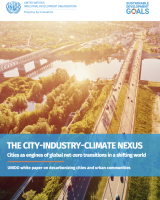
By 2050, almost two-thirds of the world’s population will live in cities, which already consume most of the world’s energy and emit the majority of greenhouse gases. This makes urban areas central to both the causes of climate change and the solutions. The white paper argues that decarbonizing cities is not only environmental policy, but a strategic industrial agenda. It introduces the “city-industry-climate nexus,” where infrastructure, production systems, value chains, and climate action converge. Cities host the industries that supply
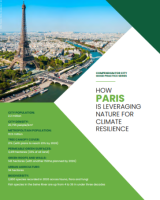
Compendium for City Good Practice Series: How Paris Is Leveraging Nature For Climate Resilience
This report, as part of the Compendium for City Good Practice series, highlights Paris's innovative approach to climate resilience through the strategic integration of nature into urban environments. It offers a comprehensive overview of Paris's strategy on urban nature, showcasing how the city is integrating biodiversity into planning, leveraging green spaces, biodiversity corridors, and sustainable landscaping to mitigate the impacts of climate change. The report serves as a valuable resource for cities worldwide seeking to emulate Paris's successful model of
All Knowledge resources
Explore the GPSC’s constantly growing library of knowledge resources, curated from cities across the world.
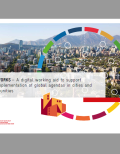
City WORKS is a web-based toolkit that aims to support the implementation of global agendas at the local level. It

Cities, Culture, Creativity: Learning from the Republic of Korea’s Experience
This report describes examples demonstrating the leading role that Korea can play globally and provides practical insights on the importance

The current biodiversity crisis, extinction of experience of nature and rising concern about people's well-being and mental health require us

Piloting Nature-based Solutions for Urban Cooling
Reducing excess urban heat and protecting populations from extreme temperatures is one of the 21st century’s key resilience and sustainability

Biodiversity in Cities - Technical Guide
In order to respond to the challenges and growing demand of counterparts, partners and populations to better integrate nature in
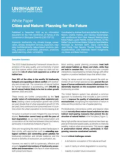
Cities and Nature: Planning for the Future
In preparation for the 15th Conference of Parties (COP15) of the Convention on Biological Diversity (CBD) to adopt the Global

Open spaces are essential resources for public health and the environment: they provide places for recreation, cultural enrichment, learning, exercise
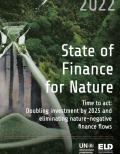
State of Finance for Nature 2022
The State of Finance for Nature is a series that aims to quantify public and private finance flows to nature-based

She Rises: a Framework for Caring Cities
This document unpacks the elements of a city that places the economics and ethics of care at the centre. The
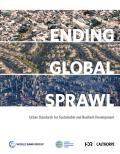
Ending Global Sprawl: Urban Standards for Sustainable and Resilient Development
The health and wellbeing of humankind will depend on the kind of cities we build in the next two generations


